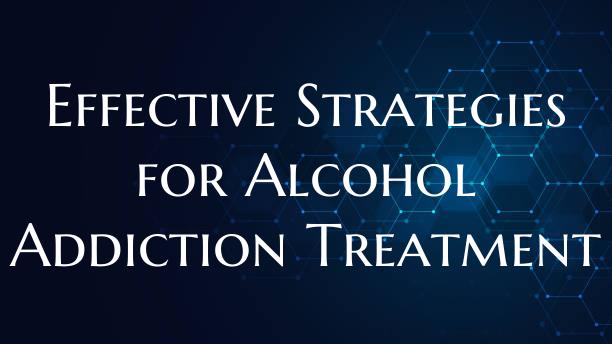
Effective Strategies for Alcohol Addiction Treatment
Alcohol addiction is a significant public health issue with detrimental physical, emotional, and social consequences. However, there are various effective strategies for treating alcohol addiction and supporting individuals on their journey to recovery. Here are some key strategies that have been proven to be beneficial in addressing alcohol addiction:
1. Medical Detoxification: The initial step in alcohol addiction treatment often involves medical detoxification. This process helps individuals safely manage withdrawal symptoms under the guidance of medical professionals. Medical detoxification can help reduce the risk of serious complications and create a foundation for further treatment.
2. Behavioral Therapies: Behavioral therapies, such as cognitive-behavioral therapy (CBT) and motivational interviewing, are commonly used in alcohol addiction treatment. These therapies help individuals identify and change harmful patterns of thinking and behavior associated with alcohol use. They also assist individuals in developing coping strategies and improving decision-making skills.
3. Support Groups: Support groups, such as Alcoholics Anonymous (AA), provide a sense of community and understanding for individuals struggling with alcohol addiction. These groups offer peer support, encouragement, and a platform for sharing experiences and insights. Support groups can be particularly beneficial in maintaining sobriety over the long term.
4. Medication-Assisted Treatment (MAT): Medications such as naltrexone, acamprosate, and disulfiram may be prescribed as part of a comprehensive treatment plan for alcohol addiction. These medications can help reduce cravings, manage withdrawal symptoms, and support long-term sobriety. MAT is often used in conjunction with other therapies for optimal outcomes.
5. Holistic Approaches: Holistic approaches to alcohol addiction treatment focus on addressing the individual's physical, emotional, and spiritual needs. These approaches may include mindfulness practices, yoga, nutritional therapy, and alternative therapies like acupuncture or massage. Holistic treatment aims to promote overall well-being and recovery.
6. Family Therapy: Involving family members in the treatment process can be beneficial for both the individual with alcohol addiction and their loved ones. Family therapy helps improve communication, establish healthy boundaries, and address underlying issues that may contribute to alcohol use. Family support plays a crucial role in the recovery journey.
7. Aftercare Planning: Planning for ongoing support and care after completing formal treatment is essential for maintaining sobriety. Aftercare may include continued therapy, participation in support groups, regular check-ins with a therapist or counselor, and developing a relapse prevention plan. Aftercare helps individuals navigate the challenges of returning to their daily lives while staying focused on recovery.
In conclusion, effective alcohol addiction treatment involves a multifaceted approach that addresses the physical, psychological, and social aspects of addiction. By combining medical interventions, behavioral therapies, social support, and comprehensive aftercare planning, individuals can achieve lasting recovery and lead healthier, fulfilling lives free from alcohol addiction. Choosing the right combination of strategies tailored to individual needs is key to successful treatment outcomes.